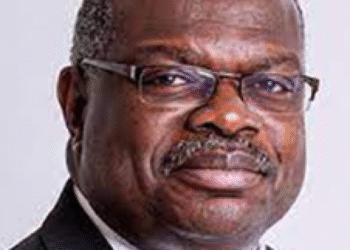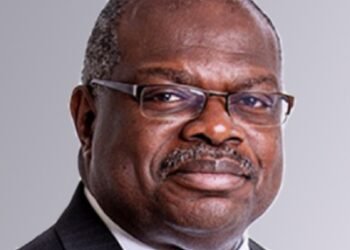At the 7th Nathan Anang Quao Excellence Lecture and Awards organized by the Civil and Local Government Staff Association of Ghana (CLOGSAG), Ransford Gyampo, a professor at the University of Ghana, delivered a compelling address on the critical role of neutrality within Ghana’s civil service.
He emphasized the importance of civil servants maintaining their impartiality amid political temptations, arguing that this is key to ensuring the integrity and effectiveness of the public service. However, he cautioned against succumbing to anything that would compromise their credibility. While civil servants might feel tempted to engage politically, they must prioritize impartiality over partisanship, ensuring that the integrity of the public service is preserved.
‘’Evidence abounds that, regime after regime [the government needs to appoint ] staffs civil Service with people on the clear basis of party loyalty in a manner that honors the principle of building a politically neutral Civil bureaucracy…’’
Ransford Gyampo professor at the University of Ghana
By doing so, Professor Gyampo noted that civil servants will not only protect their careers but will also contribute to the stability and continuity of governance in Ghana, regardless of which political party is in power.
Preserving the Integrity of the Civil Service
One of the core points of Professor Gyampo’s lecture was the urgent need to preserve the integrity of the civil service. He highlighted how political interference in appointments, promotions, and operations within the civil service could damage the credibility and effectiveness of this critical institution. According to Gyampo, a civil service that is staffed based on political allegiance rather than merit will only lead to inefficiency.
“Let us begin to question the appointment and recruitment of civil servants purely on partisan grounds, and let us push for Chief Directors to be made to rise through the ranks to attain such positions without political hands playing any role.”
Ransford Gyampo professor at the University of Ghana
By advocating for merit-based recruitment and promotion, Professor Gyampo is calling for a system that rewards hard work and competence rather than political connections. He emphasized that this would not only improve efficiency but also restore trust in the civil service.
Max Weber’s Principles of Bureaucracy
In his lecture, Professor Gyampo referenced the sociologist Max Weber’s theories on bureaucracy, particularly his postulations on the “ideal type” of civil service. According to Weber, the civil service should operate on hierarchy, impartiality, and meritocracy principles. Professor Gyampo argued that Ghana’s civil service should strive to meet these ideals. He noted; “…let us fight to deal with all the traces and factors that undermine the quest to make the Ghanaian civil service politically neutral.” He pointed out that many of the challenges facing the Ghanaian civil service today, such as inefficiency and politicization, could be mitigated by adhering more closely to Weber’s principles. By ensuring that promotions are based on merit and that civil servants are allowed to operate without political interference, the service can fulfill its role as a neutral and effective organ of the state.
Meanwhile, Professor Gyampo’s addresses behoove extra commitment, especially the Civil Service Head. The Head of Civil Service must take the lead in ensuring that civil servants remain neutral. It is his responsibility to safeguard the integrity of the service by preventing political interference and ensuring that staff are recruited and promoted based on merit.
Leaders must set the standard by creating an environment where professionalism is rewarded and political affiliations are kept out of the workplace. This Gyampo argued, is crucial if Ghana is to build a civil service that is both effective and trusted by the public.
The Challenge of Political Interference
One of the greatest threats to neutrality in Ghana’s civil service, according to Professor Gyampo, is the pervasive nature of political interference.
“The civil service is often staffed with people who do nothing but serve the interests of political parties. This not only compromises the quality of the service but also erodes public trust.”
Ransford Gyampo professor at the University of Ghana
He called for a review of the process by which civil servants are appointed and promoted, suggesting that appointments should be made based on competence rather than political loyalty. Without such reforms, he warned, the civil service will continue to be seen as an extension of the ruling party rather than a neutral institution. Professor Gyampo’s address was a powerful call to action for reforms within Ghana’s civil service. He urged civil servants to resist the temptation of partisanship, prioritize impartiality, and adhere to the principles of meritocracy and professionalism. Moreover, he called on leadership within the civil service, to ensure that appointments and promotions are based on competence and nothing else.
“Civil servants must remain neutral if the integrity of the service is to be preserved. Let us push for a system that rewards merit and professionalism rather than political connections.”
Ransford Gyampo professor at the University of Ghana
If these reforms are implemented, Ghana’s civil service can become a more efficient, trustworthy, and neutral institution, capable of serving the nation effectively, regardless of the political landscape.
READ ALSO; The Changing Landscape of Music Marketing: Why Stunts Don’t Sell Music Anymore























